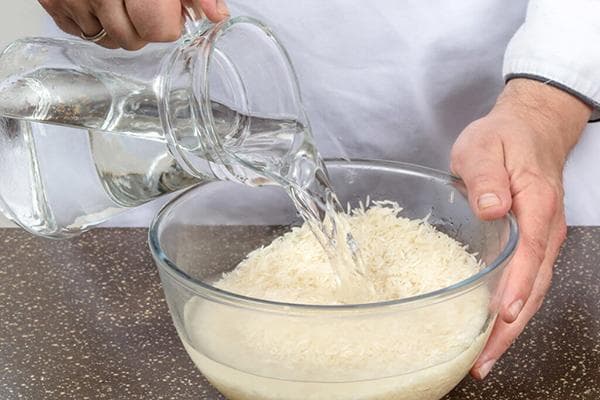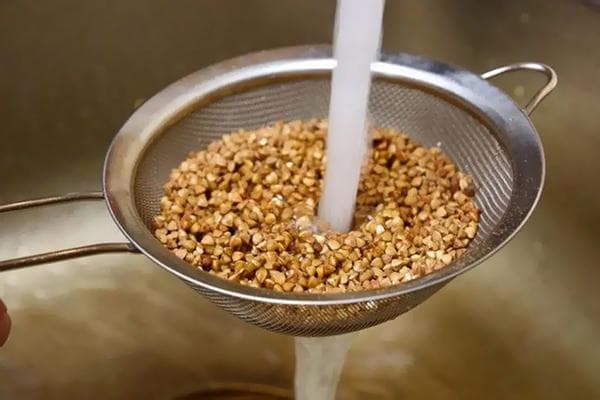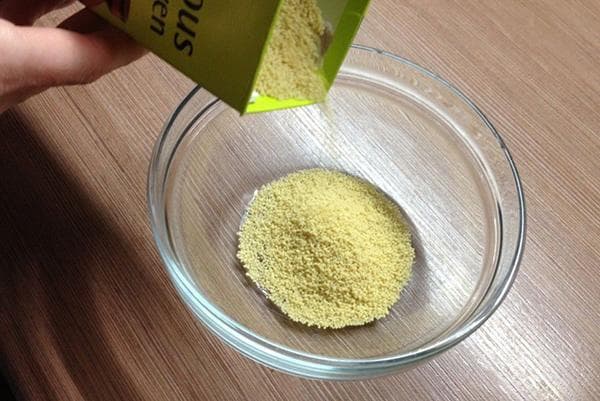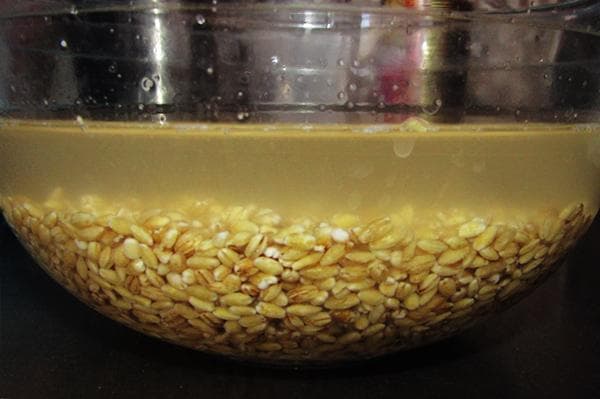Which cereals need to be washed before cooking, and which ones should be poured directly into the pan
In order for the porridge to turn out tasty and retain its beneficial properties, you need to follow all the subtleties of its preparation. It is believed that first the cereal needs to be washed. But if in the case of rice or buckwheat there are no questions, then not everyone will wash corn grits before cooking. Let's figure out what the rules are.

What grains need to be washed before cooking?
To prepare rich and tasty porridge, almost all cereals, except for a few types, must be washed before cooking. It makes sense to rinse hard grains with water. Although modern technologies for packaging products comply with hygienic standards, it is better to play it safe.
Washing the grains is necessary to wash out:
- dust;
- foreign impurities;
- husks.
After cooking, the dish will look aesthetically pleasing, and this is an important point.
Need to wash before cooking:
- rice;
- buckwheat;
- millet;
- barley;
- all legumes (beans, peas, lentils, chickpeas, mung beans, etc.).
Rice, pearl barley and millet need to be rinsed in several waters.
Washing features
Millet, rice and peas are washed to remove flouriness. Thanks to this, during the cooking process they do not form foam on the surface and do not stick together.
For better cooking of peas, rice and pearl barley, it is recommended to soak them for several hours so that they swell well. After this, the cereals are washed again, filled with clean water and put on the fire to cook.
What should the water temperature be?
- It is advisable to rinse rice and millet only with cold water.
- Warm water is suitable for washing oatmeal, pearl barley and wheat cereals. Buckwheat also needs to be washed with warm water. This helps eliminate bitterness.
To better separate impurities, you can help with your hand, moving your palm in a circle in the water. After rinsing, the water in the container should be clear.
What cereals do not need to be washed before cooking?
Before cooking, do not rinse fine grains with water:
- Semolina and rolled oats flakes. They will immediately absorb moisture and begin to swell.
- Bulgur - This is a semi-finished product. At the preparatory stage, it has already undergone heat treatment. First, at low temperatures, the grains are steamed, then thoroughly dried. After peeling, the grains are crushed. In fact, the cereal is not boiled, but only poured with boiling water and allowed time to swell (20 minutes is enough). Therefore, bulgur does not need pre-washing.
- Couscous is a product made from wheat. It would be more correct to say, from processed semolina (it is also a wheat product). To obtain couscous, semolina is lightly sprayed with water in production. The top is powdered with wheat flour. Flour is combined with semolina, resulting in grains of larger diameter - up to 1 mm. As is already clear from the process, you should not rinse the couscous.
- Corn grits It is also not recommended to rinse or soak before cooking. It is advisable to simply sort it out and remove the husks, impurities and other debris. If the corn grits are damp and crumpled, you can dry them in the oven. Otherwise, insects may appear.
- Barley groats. It is obtained by crushing barley grains. Yachka is a cut with sharp corners, which contains a lot of starch.It is because of this that it is not recommended to wash barley groats.
It is believed that fine crushed material is difficult to wash. To remove small debris, impurities and powdery dust, the cereal can be sifted through a sieve. When finished, the porridge can be either viscous or crumbly.
We looked at the main types of cereals that require washing, and identified those that do not require additional cleaning. We hope you find this information useful.



I wash everything (except semolina).
Rice for risotto is not washed!
Cereals must be washed. Even in cooking bags. Only semolina, oatmeal, and couscous are not washed.
Cereals must be washed. Even in cooking bags. Only semolina, oatmeal, and couscous are not washed.
04/1/2021 sorting through all the cereals and mine, except semolina, bulugur, couscous, oatmeal
I don’t wash buckwheat with hot water, it never tastes bitter. But you need to pour boiling water over the millet, because it can be bitter, and then just rinse it with water.
Millet with cold water 4-5 times until transparent. Otherwise it's bitter. The porridge is very tasty, I add pumpkin and a lot of raisins, milk, butter.
I wanted to cook some porridge
this one with raisins, milk and butter is just right for me
But barley groats just need to be thoroughly washed in several waters
Shouldn't I wash the cell?
Have you never seen a cell?
Yes, there is more garbage in it than anywhere else.
Not only rinse, but also lightly heat in a frying pan.
Bon appetit…
I wash all the grains before cooking, and have not observed any negative effects. As for the semolina, I have never washed it, and I was very surprised when my brother said that he washed it.
Well, my brother is overly suspicious of any unnecessary impurities, and I treated his habit ironically. But I tried it myself.Of course, I didn’t lather anything special from semolina, but I noticed a clear effect that my brother didn’t even pay attention to: after rinsing in cold water, the annoying “dumplings” that usually irritate you when you cook semolina no longer appear, even when you add dry semolina in a thin stream .
My semolina, I got used to it... when I cooked it for the children.
I don’t wash the ground grains, I just sort them out. I wash the millet with hot water until it’s transparent. The rest are warm.